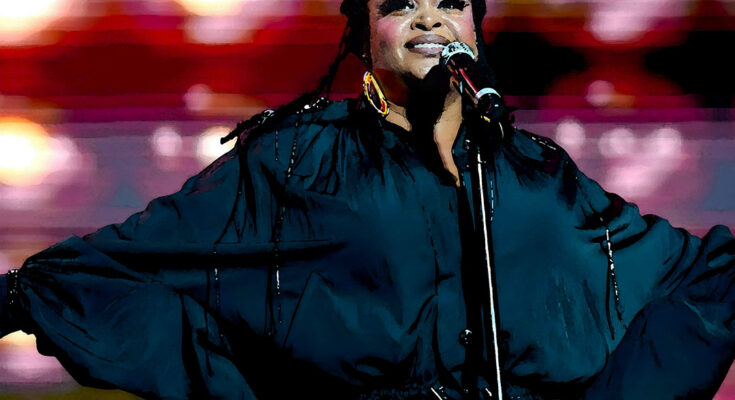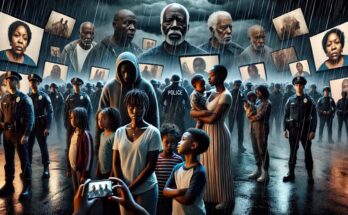Fans frequently inquire why R&B singer and actor Jill Scott abstains from performing “The Star-Spangled Banner” at sports events. Her response stems from her connection to an alternative anthem, which she discussed during a March concert in her hometown, Philadelphia.
The anthem in question is one Scott composed during her teenage years while living in north Philadelphia. This anthem is a searing critique of the racial disparities pervasive in America. After more than three decades, she introduced her reimagined anthem on her current tour. At the 2023 Essence Fest in New Orleans, Scott, an iconic figure in the neo-soul genre, showcased her rendition in a groundbreaking performance. The festival, celebrating Black artists and women, has been held since 1994 and has drawn nearly half a million attendees.
Scott’s rendition began with the familiar melody of “The Star-Spangled Banner,” but with a deliberate alteration in tempo, allowing each word to resonate in the arena. The song concludes with a powerful revision of the final line, substituting “O’er the land of the free and the home of the brave” with “This is not the land of the free but the home of the slaves.”
Social media erupted with much enthusiasm, capturing the impact of her performance. @MariePurnell5 on Twitter remarked, “In total tears of the power of this truth.” Another user, @forthecomments1, hailed Scott’s version as the new “Black American National anthem!!” Even Essence magazine, the host of the festival, joined the acclaim, declaring on Twitter that Scott’s rendition is the only national anthem they will recognize moving forward.
At 51 years old, Scott performed her anthem throughout her commemorative tour for the 20th anniversary of her platinum album “Who Is Jill Scott? Words & Sounds Vol. 1.” Her anthem performances were intertwined with her song “Watching Me” and began to attract online attention as early as April.
The tradition of performing “The Star-Spangled Banner” at sports events dates back to the late 1940s. However, recent years have witnessed increased scrutiny of American patriotic symbols due to movements advocating for racial justice, sparked by events such as the killings of Michael Brown in 2014 and George Floyd in 2020.
Scott’s anthem, penned in the early 1990s, joins a lineage of critical rearrangements of the anthem. While Jimi Hendrix’s instrumental version protested the Vietnam War in 1969, Scott’s vocal rendition boldly confronts America’s history of racial discrimination against Black individuals.
Online observers acknowledged the audacity of Scott’s rendition, applauding her unapologetic embrace of her Black identity. After performing her anthem at Essence Fest, Scott also addressed language usage and the lack of representation of Black women in the media, emphasizing unity among Black women.
Although the reason behind Scott’s decision to reintroduce her anthem remains unclear, she previously expressed her hope that the anthem wouldn’t cause division. She explained that when she sings “home of the slave,” she isn’t seeking division, but rather aims to highlight modern forms of societal enslavement.
The complete lyrics of Scott’s anthem read:
“Oh say can you see by the blood in the streets
That this place doesn’t smile on you colored child
Whose blood built this land with sweat and their hands
But we’ll die in this place and your memory erased
Oh say, does this truth hold any weight
This is not the land of the free, but the home of the slaves!”
Thank you Jill Scott for your racial intelligence, worldly understanding and phenomenal talents!





